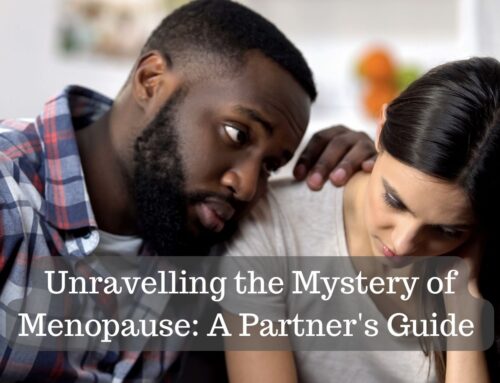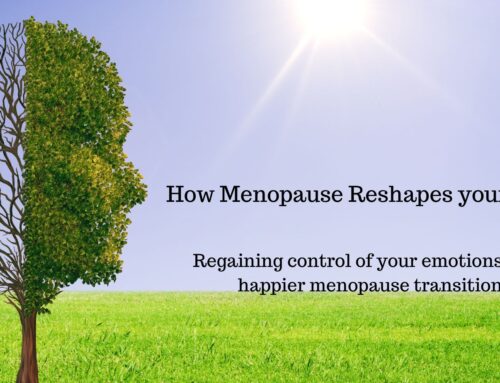Menopause and Your Mental and Emotional Health
Menopause is a phase that every woman must go through. It signals the end of the reproductive years and results in a number of psychological and physical changes. Perimenopause the phase before actual menopause can be very tough on women. While the effects of perimenopause and menopause on physical health, such as hot flashes and night sweats, have received a lot of attention, the impact of menopause on mental well-being are frequently disregarded. We will delve into the fundamental relationship between menopause and mental health in this blog, discuss typical psychological issues, and offer doable solutions for navigating this time of change with grace and positivity.
The impact of menopause on mental well-being
Understanding the connection between menopause and mental health is important. The significant hormonal changes, particularly a drop in oestrogen levels, occurs through perimenopause to menopause. Studies show estrogen has a significant impact on the neurotransmitters in the brain that control mood, sleep, and cognition. Many women consequently have psychological symptoms that may have an effect on their mental health. Common issues with mental health brought on by menopause include
Mental and Emotional Health Issues
Anxiety (General Anxiety, Health Anxiety and Driving Anxiety)
Panic (Panic attacks and paranoia)
Feeling tense or nervous
Low mood or depression (Or feeling flat)
Irritability and or anger
Overwhelming Stress
Poor concentration
Low self esteem & Confidence
The diversity and severity of those symptoms, which can negatively affect every part of life and lower quality of life, are not something that many women anticipate or are prepared for. But far too frequently, these psychological problems are barely ever discussed, and most women shy away from talking about emotional health difficulties or take medicine covertly that may not have any effect on these phycological symptoms at all, according to the British Menopause Society. DR Helen of Devon Health Practitioner stated “The menopause can make you feel like you’re on the scrap heap, like you don’t matter anymore, leaving you wondering where you fit in the world”
Addressing menopause-related mood swings and irritability: Hormonal fluctuations can contribute to mood swings, irritability, and increased vulnerability to stress. Women may find themselves experiencing intense emotions, feeling more easily overwhelmed, or having difficulty managing their reactions to daily stressors.
Understanding and identifying menopause mental health challenges
Menopause Anxiety and depression:
Menopause can increase the risk of anxiety and depression. . Anxiety and a general sensation of unease can be brought on by fluctuating hormones, a variety of constantly changing symptoms, as well as other life events like ageing, changes in body image, and personal and professional influence. General anxiety, health anxiety, relationship anxiety, social anxiety, and driving anxiety are just a few examples of how this can appear.
Sleep disturbances:
Insomnia and disrupted sleep patterns are common during menopause. Hormonal changes can interfere with the quality and duration of sleep, leading to fatigue, irritability, and difficulties with concentration and memory.
Menopause Cognitive changes:
Alterations in cognition: Menopausal brain fog is a term used to describe cognitive changes that certain women may suffer. Memory lapses, focus and concentration issues, as well as feeling intellectually lethargic, are a few examples. Hormonal changes are thought to be a contributing factor, while the exact reasons of these cognitive changes are currently under investigation.
Improving mental health during the menopausal transition
While menopause may present unique mental health challenges, there are several proactive steps to improving mental health during the menopausal transition:
Seek support:
Talk openly about your experiences with trusted friends, family members, or support groups. Sharing your thoughts and feelings can provide validation, comfort, and a sense of community.
Prioritise self-care:
Incorporate self-care activities into your daily routine. Engage in activities that bring you joy, such as exercise, hobbies, meditation, or spending time in nature. Taking care of your physical and emotional needs is essential for maintaining mental well-being
Maintain a healthy lifestyle:
A balanced diet, regular exercise, and sufficient sleep can have a positive impact on your mood and overall well-being. Avoid excessive caffeine, alcohol, and processed foods, as they can exacerbate symptoms like anxiety and sleep disturbances.
Explore relaxation techniques:
Practice stress-reducing techniques such as deep breathing exercises, yoga, or mindfulness meditation. These activities can help calm the mind, reduce stress, anxiety, and improve sleep quality.
Seeking help: Menopause, mental health, and therapy”:
Talking therapy, such as cognitive behavioural therapy (CBT), can help with low mood, anxiety, stress and even hot flushes and night sweats. According to Menopause specialist Doctor, Dr Louise R Newson women going through menopause are often prescribed antidepressants while the underlying hormonal changes are overlooked. This medication fail to address the root cause of their problems and most times are not effective.
Consider utilising the services of menopause and emotional coaches, such as our programme, which adopts a comprehensive approach to address your menopause-related challenges. Our approach integrates scientifically backed methods, including Cognitive Behavioural Therapy, hypnotherapy, and Neuro-Linguistic Programming, to provide Holistic approaches to menopause and mental well-being. By embracing these beneficial principles, we help you experience improvements right from the initial session.
In summary, it is common to face mental health issues during menopause, and it’s crucial to remember that you are not alone. There is no need to endure your struggles in silence, as support and solutions are available. Taking proactive steps and seeking professional assistance, when necessary, can make a significant difference in your mental and emotional well-being. Remember that your mental and emotional health are as important as your physical health, and neglecting them can lead to physical health complications. Therefore, don’t hesitate to seek help.







Leave A Comment